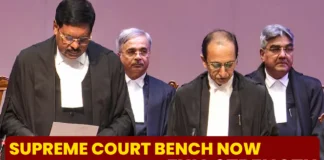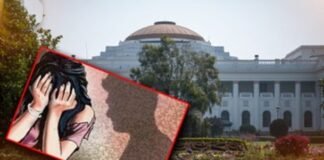
In a significant ruling, the Supreme Court has declared that those accused under the PMLA are entitled to access materials collected by the ED but not used in prosecution.
NEWS DESK, New Delhi, 07-May —
In a landmark decision that reshapes the rights of accused persons under the Prevention of Money Laundering Act, 2002 (PMLA), the Supreme Court has ruled that the Enforcement Directorate (ED) must disclose the list of statements and materials it chooses not to rely on during prosecution.
This decision comes in the appeal titled Sarla Gupta & Anr. v. Directorate of Enforcement (Cri.A. No. 1622/2022), and overturns a Delhi High Court verdict that had denied the right of pre-trial access to such materials.
“Accused Has Right to Know What’s Withheld”
Justice Abhay S. Oka, reading the verdict, emphasised that a fair trial under Article 21 of the Constitution includes the right to defend, and this defence is undermined if accused persons are kept in the dark about potentially exculpatory evidence.
“The list of statements, documents, exhibits and objects not relied upon must be furnished so that the accused can move the Court for their production,” the bench said.
The ruling allows the accused to seek these documents even at the bail stage, invoking Section 97 CrPC (Section 94 BNSS), and during the defence stage under Section 233 CrPC (Section 256 BNSS).
The judgment also sets a precedent for liberal interpretation of Section 233(3) CrPC, urging that any request for production of documents should only be denied under exceptional circumstances.
Context and Constitutional Implications
The bench, also comprising Justices Ahsanuddin Amanullah and Augustine George Masih, underlined that the reverse burden placed on the accused under Section 24 of the PMLA amplifies the need for access to all relevant materials.
This decision also addressed concerns that denial of such access purely on procedural grounds would violate Article 21 protections.
“You can’t say he can only produce documents in his pocket,” Justice Oka remarked, in response to the ED’s objection that blanket access would disrupt ongoing investigations.
The Court clarified that Special Judges must ensure delivery of:
- Prosecution complaint
- Statements recorded under Section 50 PMLA
- Supplementary complaint documents
- List of unrelied materials
You can explore more such landmark rulings in our most popular section and read more national news updates on legal issues affecting rights of the accused.
ED’s Position and Court’s Rebuttal
Arguing for the ED, Additional Solicitor General SV Raju stated that the accused should not receive a general inspection right and must establish relevance. The Court disagreed, affirming that any refusal must be judicially reasoned and limited.
The case drew attention to past rulings, including Tarsem Lal v. Directorate of Enforcement, which affirmed that PMLA prosecutions must follow CrPC Sections 200–205 after the complaint is filed.
Advocates R. Basant and Gopal Sankaranarayanan, appearing for the petitioners, highlighted the mismatch between PMLA’s heavy burdens on the accused and their limited procedural rights.
“Early access to withheld documents is essential to prepare a proper defence, especially in bail hearings,” Sankaranarayanan stressed.
Stay informed about such critical Supreme Court rulings through our dedicated legal helpline and watch detailed case summaries on our YouTube channel.
Tags:
PMLA, Supreme Court, Enforcement Directorate, right to fair trial, CrPC, unrevealed documents, Article 21




